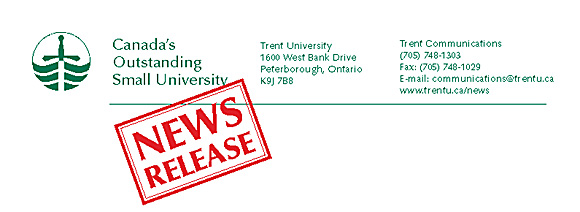

|
Water: Who owns it? Can you trust it? Is there enough? The most pressing and controversial questions about water will be debated and discussed at a major international workshop entitled "Simply Water?" hosted by Trent University from February 18-20, 2002. In a series of three concurrent workshop sessions, outstanding speakers from Canada and the United States will examine the need for new ways to manage our water resources in the face of changing global climate and economic conditions. The "Simply Water?" workshop will address many of the issues raised by the recent release of the first phase of the Walkerton Report and builds on the themes raised at the highly successful Chancellor's Dialogues, hosted by the late Peter Gzowski at Trent University in November 2001. Climate change, water pricing, contamination of groundwater, First Nations concerns, and urban vs. rural needs will be key issues discussed at the Simply Water? workshop. The workshop, which runs from 9 a.m. to 6 p.m. on Monday and Tuesday and until noon on Wednesday, is intended for policy makers, government, academics, native groups, environmentalists, business and industry, and those interested in the effects of Great Lakes and Kawartha water resources on the human populations. In the three concurrent sessions, experts from a wide range of backgrounds will focus on the questions: Who owns it? Can you trust it? and Is there enough? The Plenary Sessions, held in the Wenjack Theatre, are open to the public. Further details and registration information can be found at the workshop Web site at www.trentu.ca/wsc. Plenary Sessions open to the public: Monday, February 18th 9:30 a.m. to 1
p.m., Wenjack Theatre: Tuesday, February 19th 1:30 - 2:30 p.m.,
Wenjack Theatre: Wednesday, February 20th 9 a.m. -
Noon, Wenjack Theatre The Simply Water? workshop marks
the 10th anniversary of the Sheperd Family lectures, funded through
an endowment to Trent University and the Environmental Resource
Studies Program. It is presented in conjunction with The Watershed
Science Centre, The Ontario Ministry of Natural Resources, The
Program on Water Issues at The Munk Centre for International
Studies, University of Toronto, and the Native Studies Program
at Trent University.
|
![Back to Trent's Home Page [TRENT'S CREST]](/images/cresthome.gif)